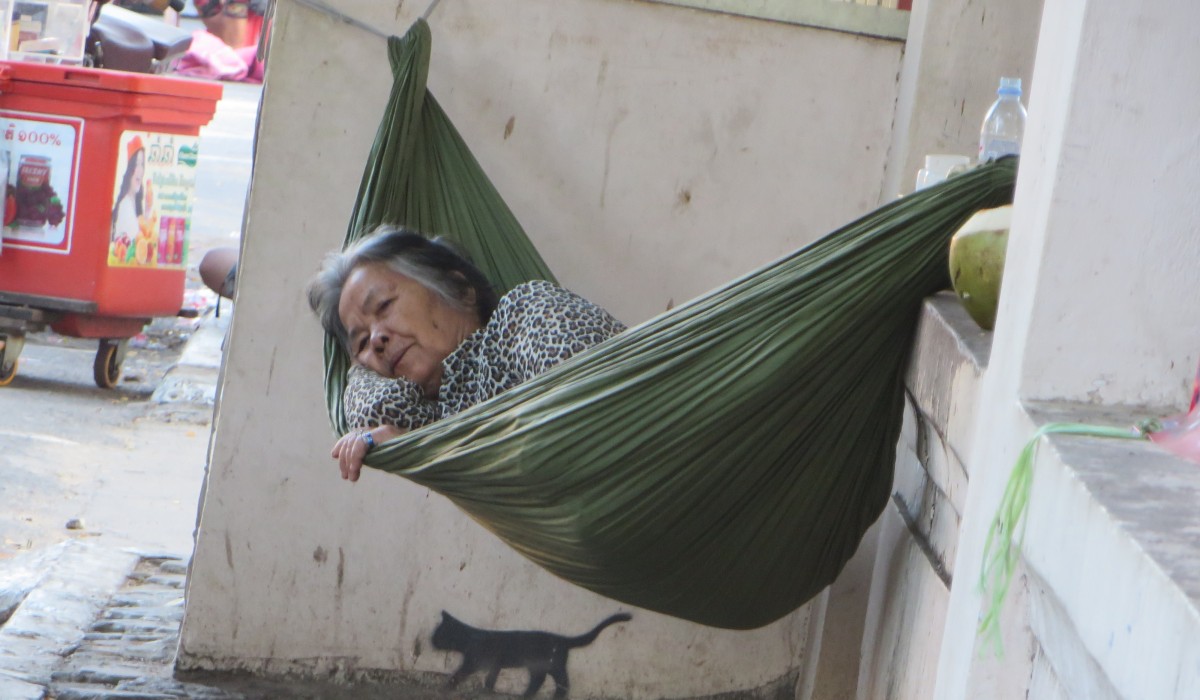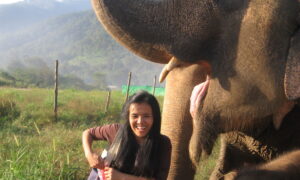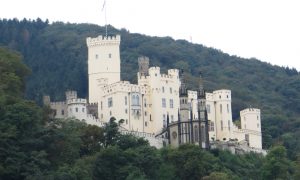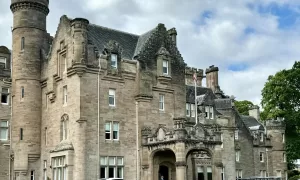Tucked in on the peninsula of Southeast Asia, between Vietnam and Thailand and underneath Laos, Cambodia persists. Its history, both long and near-term, was horrific until very recently. If you saw the film, “The Killing Fields,” released in 1984, you remember the dreadful story of the Pol Pot regime.Wary and apprehensive, I landed in the capital city of Phnom Penh in October, 2013, for a three-week assignment for the Cambodia Tribunal Monitor.
My task was to write a blog detailing the daily happenings at the ECCC—Extraordinary Chambers in the Courts of Cambodia—as it wrapped up a 222-day trial of Pol Pot’s remaining top-tier cronies in the Khmer Rouge.
I had heard Phnom Penh was dangerous. Very dangerous. After all, a third of the population of 6 million was killed or died between 1975-1979, and those years weren’t the totality of the troubles the people of Cambodia have endured. I was prepared to just stay in my hotel.
Happily, human nature proved my thesis yet again: people are essentially good. My hosts, who work hard for the Documentation Center of Cambodia (DC-Cam), were delightful. My boutique hotel was perfect. The city–founded in 1434 and once known as “the Pearl of Asia”—quickly made me feel welcome. Soon, I began walking my neighborhood, exploring, wandering at length…and felt perfectly safe.
Well, except for crossing the street. Quite possibly the gnarliest thing of all was summoning the gumption to trust the rule: look for a (bit of an) opening in the steady stream of mostly motor scooter traffic, start walking and by all means do not stop! My mantra, whispered aloud: “Keep walking, keep walking, keep walking.” If you keep a steady pace, the traffic will flow around you. It’s a little insane.
 The city, after the Pol Pot years, exhaled from its traumas and still remains mostly un-reurbanized from its years as a French colony (beginning in 1863 and lasting 90 years). Change is beginning to roll in, but essentially I found that being there was like stepping back in time, to see the balconied four- and five-story buildings. There was a sweet quaintness to it that I fear is fast disappearing.
The city, after the Pol Pot years, exhaled from its traumas and still remains mostly un-reurbanized from its years as a French colony (beginning in 1863 and lasting 90 years). Change is beginning to roll in, but essentially I found that being there was like stepping back in time, to see the balconied four- and five-story buildings. There was a sweet quaintness to it that I fear is fast disappearing.
I felt it essential to visit Tuol Sleng, the former school-turned-prison where thousands were terribly tortured. Also, the Choeung Ek Genocidal Center, or, more aptly, the killing fields (the one chosen to be kept as a memorial—there were once many dozens of such places scattered across the nation). I also visited the king’s stunning palace, various monuments, and witnessed the passion for play by citizens of all ages in the parks at dawn and dusk. Badminton, a form of hacky-sack, walking, jazzercise—all free-form and light-hearted.
As a tourist destination, Cambodia is still playing second-fiddle to its more well-known neighbors. And without my in-country “fixers” I think getting around could have been much more difficult. But to witness the historical closing statements of one of the biggest human rights/crimes against humanity trials ever was an honor, as was just being there in that amazing, resilient country. May it continue to heal from its grievous wounds, and move forward with the grace it is already offering as best it can.
For more information on the trial: www.cambodiatribunal.org
If you are interested in reading more about traveling in Cambodia click here for Angkor Wat Haunts Me Still and here for visiting Siem Reap and Angkor Wat for a second time.
 Author Bio: Kate went to Cambodia on just 8 days’ notice in October 2013, and relished the chance to provide eyes & ears for an important international event: bringing the Khmer Rouge (those who are left to be tried anyhow) to justice. She lives in Lowell, Michigan when she’s not galavanting around the world.
Author Bio: Kate went to Cambodia on just 8 days’ notice in October 2013, and relished the chance to provide eyes & ears for an important international event: bringing the Khmer Rouge (those who are left to be tried anyhow) to justice. She lives in Lowell, Michigan when she’s not galavanting around the world.


















Comments
1 CommentAndrew Nominus
May 13, 2014Delightful, pleasure to read, due to care of writer, and interesting.